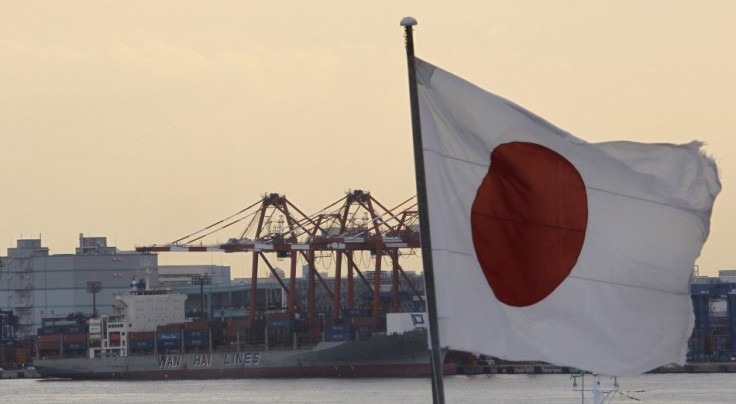Japanese 'Rising Sun' Flag -- Why It Is Hated In Asia

The 2020 Summer Olympics is to be held in Tokyo beginning July 24 through Aug. 9. In September, South Korea requested the Japanese “rising sun” flag be banned from the event and are intensifying their efforts to get Japan to comply.
To understand the hatred of the Kyokujitsuki flag or the rising sun flag by Koreans and other Asian countries, one must begin with elderly Koreans who still have vivid horrific memories of World War II. They were subjugated into forced labor, subjected to torture and executions and many women were forced to become sex slaves or “comfort women” for Japanese soldiers with the rising sun flag in full view.
The flag, with its central red circle and 16 red stripes or rays, is not the official flag of Japan but it still is commonly seen in commercial products and advertising. Historically, it was used by the Imperial Japanese Army and Navy. The Japanese official national flag to be carried by Japan’s Olympic athletes is the Hinomaru flag with a red disc on a pure white background.
South Koreans are concerned that spectators at the Olympic events will display the despised rising sun flag. They want it banned because to them the flag is the equivalent of what the Nazi swastika represents to the Jews, victims of Nazi Germany in WW II where over 6 million people were killed in the Holocaust.
An Min-suk, a member of the Military Police (MP) in South Korea’s ruling Democratic party told South Korean media in September, “A flag symbolizing war is not suitable for peaceful Olympic Games. The rising sun flag is akin to a symbol of the devil to Asians and Koreans, just like how the swastika is a symbol of Nazis which reminds Europeans of invasion and horror.”
Tokyo Olympic organizers say they have no plans to restrict public use of the flag during the games, noting its wide use in commercial products and that it does not have any political connotations. Japan’s foreign ministry went a bit further explaining that it is an integral part of Japanese culture and widely accepted in the international community.
The comparison here is with the Confederate flag from the U.S Civil War that is still displayed in former Confederate states in the southern U.S. but is viewed by many as an ugly reminder of slavery and oppression of the Civil War era.
The Olympic Charter states: “No kind of demonstration or political, religious or racial propaganda is permitted in any Olympic sites, venues or other areas.” So far, the IOC has said only that it would deal with potential violations of the charter at next year’s Games on a case-by-case basis.
© Copyright IBTimes 2024. All rights reserved.




















